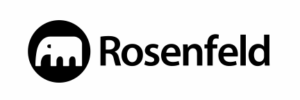LCL 2021 Linguistics Beyond Academia
The Linguistics Beyond Academia Special Interest Group of the Linguistic Society of America (LSA) kicked off the first-ever virtual summer “boot camp” in July 2021 that focused exclusively on career training for linguists.
The Linguistics Career Launch (LCL) was a four-week series of courses, talks, workshops, and events designed for linguists who want to pursue work outside of academia.
LCL 2021 Calendar.
LCL 2021 Courses and Events.
LCL 2021 videos are available in the following LCL 2021 YouTube playlist. All videos are available here.
The Linguistics Career Launch (LCL) included:
- Company profiles: presentation/discussion focusing on a specific company
- Career Expo: a virtual exhibit hall for sponsors, allowing conversations with attendees
- Career mixers: informal networking with career linguists, sponsors, and fellow students
- Career profiles: linguists sharing their career arcs, both general and industry/sector specific
- Courses and workshops: interactive learning focusing on a specific industry-related skill set
- Office hours: small group or individual mentoring sessions
Linguistics Career Launch (LCL) events are open to undergraduates as well as graduate students, post-docs, faculty, and alums — in short, any linguists who want to transition from academia to industry.
Interested? Although the July 2021 boot camp is over, you can get the benefits of the summer lectures and panels and workshops on your YouTube channel. You can contact us here.
LCL 2021 Organizers
Nancy Frishberg
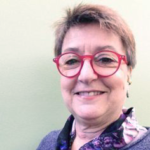 Nancy Frishberg (she/her) has been a linguist in industry, since 1985. She currently calls herself a User Experience (UX) Strategist and Researcher. Frishberg has combined her expertise in language and human cognition with a longstanding interest in technology, working at IBM, Apple, Sun Microsystems and several consulting firms on behalf of clients in education, health and wellness, digital media, financial services, and civic design.
Nancy Frishberg (she/her) has been a linguist in industry, since 1985. She currently calls herself a User Experience (UX) Strategist and Researcher. Frishberg has combined her expertise in language and human cognition with a longstanding interest in technology, working at IBM, Apple, Sun Microsystems and several consulting firms on behalf of clients in education, health and wellness, digital media, financial services, and civic design.
Most recently, she has been coaching teams, typically those seeking to learn more about UX methods and operations, and individuals, especially career changers, exploring new options for work.
She earned all her degrees in linguistics: AB (with honors) at University of California, Berkeley, the MA and PhD at University of California, San Diego. Her first career, in academia, focused on sign languages of Deaf people. She authored the primary reference text for training sign language interpreters, Interpreting: An Introduction, still in print after 35 years. This written examination for the US Registry of Interpreters for the Deaf to certify interpreters is based on this book.
Frishberg currently lives in rural Livermore, CA, on a ranch where they grow olives and produce EVOO.
Websites:
http://www.fishbird.com (UX. and language)
http://www.RanchoMilagro.us (extra virgin olive oil).
Alexandra Johnston
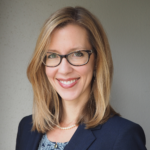 Dr. Alexandra Johnston (she/her) is a faculty member in the Department of Linguistics at Georgetown University in Washington, DC. She teaches graduate courses in intercultural communication and career management for social scientists. She is Director of the Master’s program in Language and Communication, which prepares graduates to apply training in linguistics to develop career paths in business, government and nonprofit organizations.
Dr. Alexandra Johnston (she/her) is a faculty member in the Department of Linguistics at Georgetown University in Washington, DC. She teaches graduate courses in intercultural communication and career management for social scientists. She is Director of the Master’s program in Language and Communication, which prepares graduates to apply training in linguistics to develop career paths in business, government and nonprofit organizations.
Dr. Johnston has over 10 years of talent development experience as the principal consultant of Strategic Language Solutions and as VP of Intercultural Communication at Integrity Communications, a leadership development and executive coaching firm. She specializes in turning research-based linguistic insights into actionable strategies for improving communication in the workplace. Her clients include Fortune 100 companies in the agricultural and biotechnology space, where she trains global teams in bridging communication differences and provides executive coaching. She has a PhD in Linguistics from Georgetown University and a Master’s in East Asian Studies from Stanford University where she studied Japanese. She worked and researched in Japan for 3 years, travels to Lebanon every year, and currently lives in the DC metro area.
Emily Pace
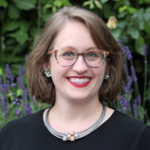 Emily Pace (she/her) has a breadth of experience across the non-profit, public, and private sectors, including at IBM Watson, the National Association of Attorneys General, the Close Up Foundation, and the Library of Congress European Reading Room. Her academic and career focus brings attention to social complexity through interconnected domains of language, communication, political science, cultural studies, anthropology, and education. As head of linguistic project development, she leverages the deep skills and knowledge of her team to collaboratively produce solutions informed by client needs. Emily holds a B.A. in French and Arabic and an M.S. in Theoretical Linguistics, both from Georgetown University, as well as certificates from the Paris Chamber of Commerce and the Paris Institute of Political Studies (Sciences Po). She serves as a convener for the Linguistic Society of America’s Linguistics Beyond Academia Special Interest Group.
Emily Pace (she/her) has a breadth of experience across the non-profit, public, and private sectors, including at IBM Watson, the National Association of Attorneys General, the Close Up Foundation, and the Library of Congress European Reading Room. Her academic and career focus brings attention to social complexity through interconnected domains of language, communication, political science, cultural studies, anthropology, and education. As head of linguistic project development, she leverages the deep skills and knowledge of her team to collaboratively produce solutions informed by client needs. Emily holds a B.A. in French and Arabic and an M.S. in Theoretical Linguistics, both from Georgetown University, as well as certificates from the Paris Chamber of Commerce and the Paris Institute of Political Studies (Sciences Po). She serves as a convener for the Linguistic Society of America’s Linguistics Beyond Academia Special Interest Group.
Susan Steele
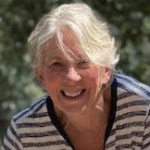 Susan Steele (PhD, Linguistics, University of California, San Diego, she/her) spent the first part of her salaried life as a faculty member, primarily, but not exclusively, at the University of Arizona, and the second part as a university and college administrator, in various locales and a variety of institution types.
Susan Steele (PhD, Linguistics, University of California, San Diego, she/her) spent the first part of her salaried life as a faculty member, primarily, but not exclusively, at the University of Arizona, and the second part as a university and college administrator, in various locales and a variety of institution types.
Since retiring, she has been active in non-profit administration, focusing on expanding their scope and influence. Her linguistic training has made her particularly adept at bringing order to large, messy, organizational problems.
Laurel Sutton
 Laurel (she/her) is a linguist, strategist, and co-founder of Catchword, a naming and branding agency. Her love of linguistics began with a BA in Linguistics at Rutgers University and continued in graduate school at UC Berkeley, where she specialized in both sociolinguistics and phonetics. She has co-edited two volumes on gender and linguistics, as well as a volume celebrating Robin Lakoff’s contribution to the field.
Laurel (she/her) is a linguist, strategist, and co-founder of Catchword, a naming and branding agency. Her love of linguistics began with a BA in Linguistics at Rutgers University and continued in graduate school at UC Berkeley, where she specialized in both sociolinguistics and phonetics. She has co-edited two volumes on gender and linguistics, as well as a volume celebrating Robin Lakoff’s contribution to the field.
Despite being born and raised in New Jersey, Laurel speaks excellent English. She is the President of the American Name Society and a Committee Chair of the Linguistic Society of America, and has served as an expert witness on naming and branding issues. She is delighted that her most-cited paper, written in 1994, was one of the first to look at the issue of gender and online communication (“Using USENET: Gender, Power, and Silence in Electronic Discourse”).
LCL 2021 Sponsors



![]()
